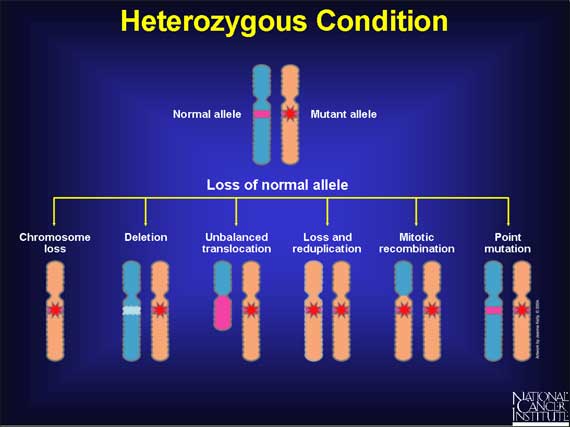|
There are several ways a cell can suffer loss of heterozygosity. An entire chromosome containing a normal allele may be lost due to failure of the chromosomes to segregate properly at mitosis (nondisjunction). Alternatively, an unbalanced exchange of genetic material can occur in a process called translocation, resulting in loss of a chromosomal region containing the normal gene. Sometimes when a normal gene is lost, a reduplication of the remaining chromosome with an abnormal gene occurs, leaving the cell with two abnormal gene copies. Normal genes may also be lost during normal mitotic recombination events or as a consequence of a point mutation in the second allele, leading to inactivation of the normal counterpart.

< Previous | Index | Next Slide > |